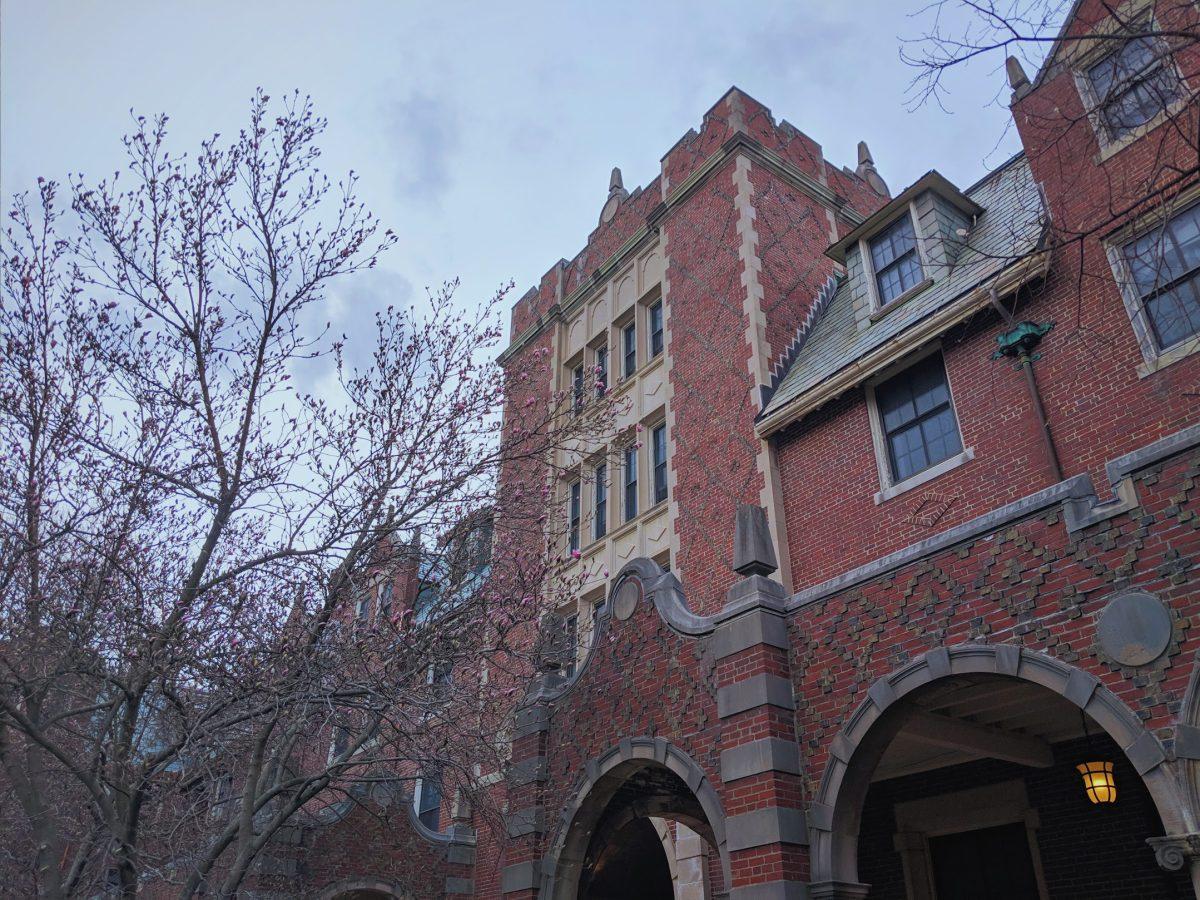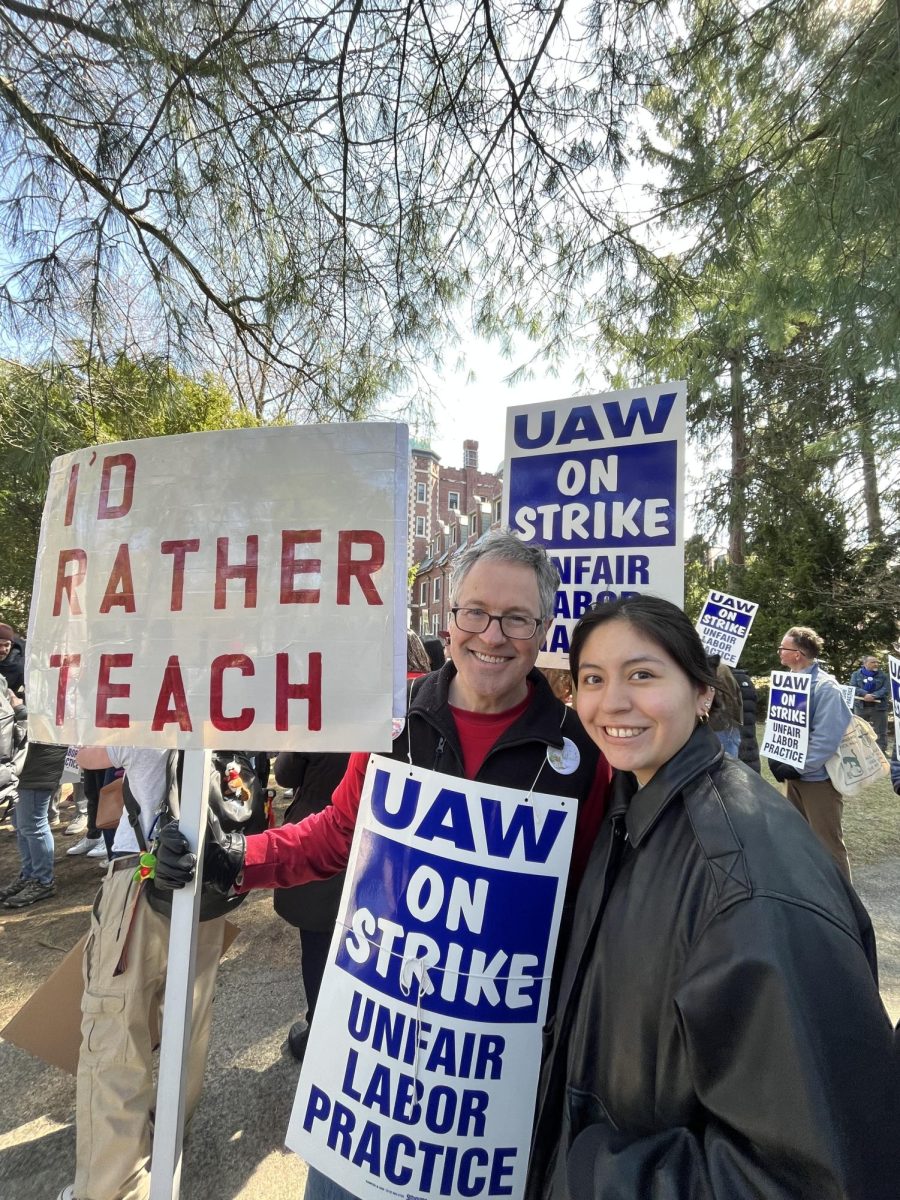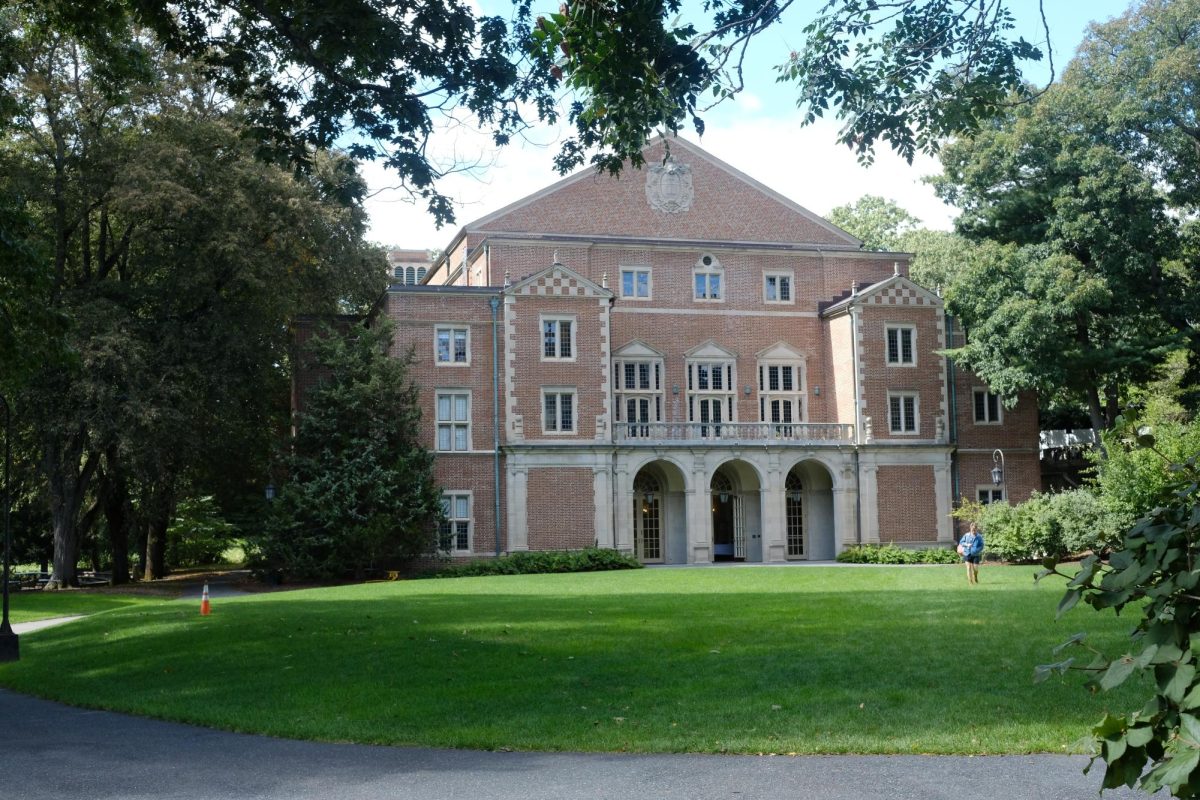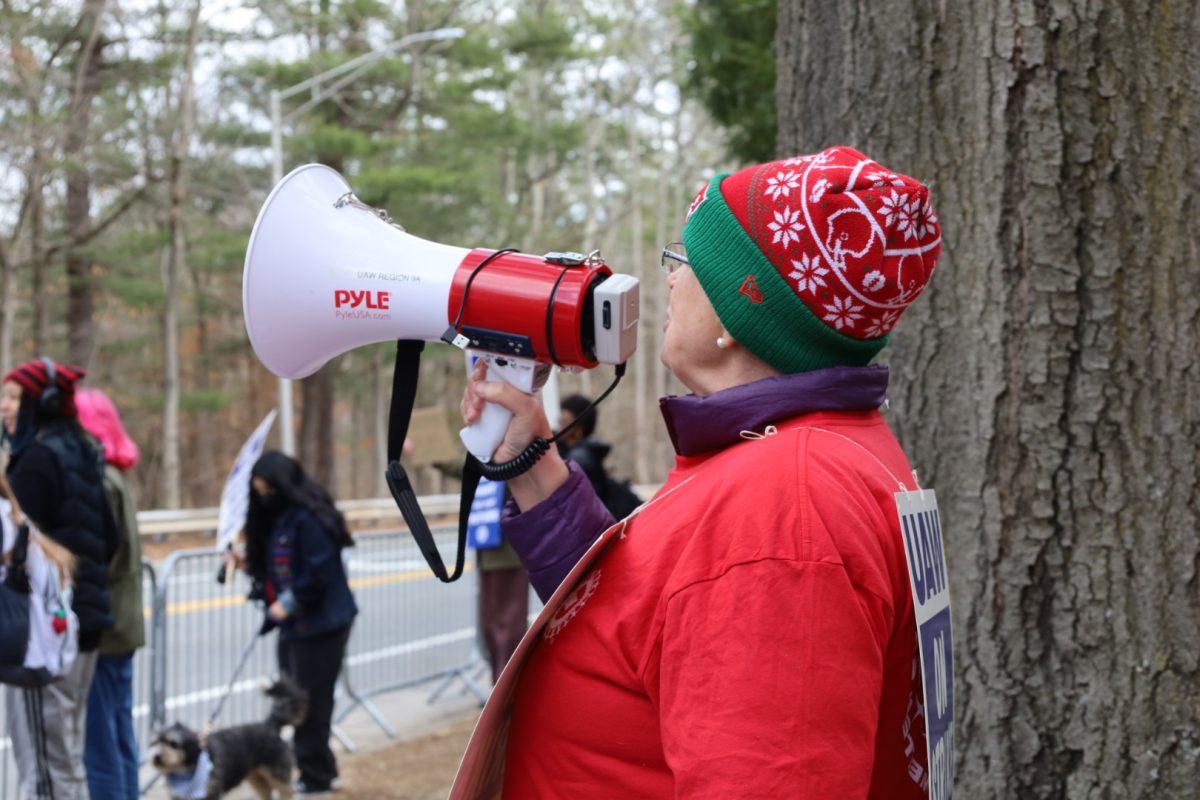On March 10, two days before the one year anniversary of the day students were forced to evacuate campus due to the outbreak of the COVID-19 virus in the United States, College President Paula Johnson announced that the College was expecting to welcome back all students in the fall at pre-pandemic capacities. According to an email sent out to students and faculty, classes will be held in person, doubles and triples will be assigned in dormitories, and the term system will be replaced with the previous semester schedule. Planning and implementation are currently being discussed by an ad hoc planning committee that consists of faculty, administrative members and College Government President Tatiana Ivy Moise ’21 as student representative.
The email corresponded with a turning point in the course of the pandemic. Massachusetts announced just five days later that Phase 3 vaccine eligibility (all healthy adults over the age of 16) would begin April 19, following a statement by US President Joe Biden on March 11 that the vaccine would be available to the general public in all states by no later than May 1. The emergency release of the single-dose Johnson & Johnson vaccine and the boost in vaccine production have led to an expedited vaccine rollout. On top of his goal to vaccinate 100 million Americans within his first 100 days in office, Biden has also stated that he hopes to get the nation “closer to normal” by July 4.
In a separate email to The News, Provost Andrew Shennan, who is chairing the ad hoc committee, wrote that the College’s reopening plan assumes that vaccines will be readily available for students by the fall. If legal, the Provost wrote, the school would consider mandating a COVID-19 vaccination for all students in addition to the vaccinations they already require.
“Our main priority is to think through, as a group of colleagues from across the campus, the complicated process of transitioning out of the extraordinary conditions that we’ve been operating under this year,” Provost Shennan wrote. “We’re thinking of the fall as a transitional time, when we are able to resume much — but not all — of what we knew as ‘normal’ before COVID.”
According to Provost Shennan, the College anticipates that restrictions on off-campus travel will be removed in the fall, although certain protocols, such as mask wearing and social distancing, will remain in place. Additionally, he writes that cross-registration with Babson, Olin and MIT is expected to continue, though details have not been finalized.
[separator type=”thin”]
Many students see the announcement as a first step towards the return of “normal” social and academic life at Wellesley.
“I’m mostly optimistic [about the College’s plan],” Kiara Liu ’23 said. “The US seems to be doing a decent job of vaccinations so far. … The College’s plans seem to have mostly worked this year, so I think next year shouldn’t be terrible.”
Liu, an international student from Canada, decided to remain in Vancouver over the course of the 2020-21 school year out of precaution against being infected with the virus, but has high hopes of returning for her junior year.
“[It’s like] I never really left the spring of my first year,” Liu said. “It feels more like the world at Wellesley is moving forward and I’m stuck suspended in time.”
Candice Ye ’23 was in Wuhan, China when the outbreak began in late December. After the Chinese government imposed lockdown restrictions over the entire city, Ye was unable to return to Wellesley to finish her second semester and was forced to take a semester leave. And though she had hoped to return to the US for an in-person sophomore year, health complications and visa issues proved to be an insurmountable obstacle.
“I’ve been stuck here since the beginning, so I’m eager to come back,” Ye said. “I definitely feel that I’ve lost [some] connection with the campus … I think I will try harder to build the connection to the campus again when I come back, maybe join more organizations and activities. In this remote year, I just can’t get many chances to hang out with other people or join many events. I just have to compensate for that in my junior and senior year. That’s all I can do.”
For first-years who were denied the traditional college experience, a normal Fall 2021 semester would mean the chance to finally get the true “Wellesley experience.”
Although Van An Trinh ’24 enjoyed their first on-campus semester, they are excited to anticipate the return to normal. Included in this is the possibility of attending parties and other informal social gatherings.
For Trinh, and as many other current first-years have expressed on social media, creating connections has been difficult given stringent social distancing rules and block regulations that tend to sequester students within their blocks. Remote first-years, in particular, who will not step foot on campus until their sophomore year, have reported feelings of isolation and detachment from the rest of the Wellesley community.
“I’d like to see some accommodation for rising sophomores who didn’t have a typical orientation experience,” Trinh said.
Moise agrees that accommodations for the Class of 2024 are vital. While Moise is grateful that many first-years have gotten to be on campus this past year, she acknowledges that they have not experienced “everything Wellesley can be.” Moise is also excited for the Class of 2022 to, hopefully, have a more “normal” graduation.
“I think this goes without saying, but I’m so excited for people to be together again in a way that most of us are longing for,” Moise said. “The Wellesley experience is pretty grounded in community. I’m excited for spontaneity to return to the Wellesley experience [and] for that closeness to return.”
[separator type=”thin”]
Michelle Zhao ’23, however, is not convinced that “close to normal” will be enough.
“I don’t think life will go back to normal,” Zhao said. “A lot of things changed during the pandemic. Most importantly, people’s attitudes changed. Even if we get vaccinated, the CDC says we still need to wear a mask to stop the spread. It’ll be different, in a way.”
Zhao had initial plans to live off-campus in Cambridge and cross-register at MIT in her junior year. In normal school years, Wellesley students are permitted to take up to half of their credits at another institution each semester; during the pandemic, this number was reduced to one. Now, Zhao is uncertain what the next course of action is — even if both schools welcome back pre-pandemic populations, it is unknown if in-person cross-registration will still be feasible.
“Different schools have different policies, so we don’t know the administration will think about it,” Zhao said. She has decided to wait until April to sign the lease for an apartment, which she feels will give her a better grasp on the situation.
“I don’t hope too much,” said Zhao, “or else I might be disappointed.”
Moise is also cautious in her optimism. She was initially surprised that the College sent out such a detailed plan so early in the semester, given that so much can change between now and when school starts.
“My concern, because I don’t know the science, is that something is going to happen over the summer where we can’t reconvene everybody,” Moise said. “I can only imagine how much it would suck, how disappointing it would be … to have to repeal that plan.”
Zhao, who is from Beijing, China, has remained at Wellesley since the pandemic began last March. Apart from her concern that herd immunity will not be enough for a return to normalcy, Zhao also worries that worsening Sino-US relations will prevent her from being able to return to the College if she does choose to go home. Without any idea of when the travel ban from both countries will relax, many students from China — who make up the largest percentage of international students at Wellesley — have been forced to either remain alone in the United States for the time being, or not be able to come back at all.
“I feel like it’s a huge pity for me and many other people, like the Class of 2024, who are forced to spend their entire year in China remotely,” Ye said. “The time difference makes it hard to attend classes and … it’s easy to feel disconnected from campus.”
Foreign-made vaccines, including Sputnik V and Sinovac, have also been at the forefront of the conversation. Though widely distributed outside of the United States, the FDA has yet to approve either or the Oxford-developed AstraZeneca vaccine.
“The only reservation I have is that the US will change its travel restrictions, such as only accepting people who have been vaccinated by certain approved vaccinations, like what China is doing presently,” Liu said. “It might be difficult to get US-approved vaccinations in some countries.”
At the time of this article’s publication, the College had not yet outlined a policy for students inoculated with non-FDA-approved vaccines or those who face travel restrictions.
Despite any potential setbacks, however, President Johnson’s email instilled hope for many that an end to the year-long pandemic was finally in sight.
“Since so many things have happened, we’ve all been so vulnerable,” Ye said. “We can only adjust our emotions and get ready for what we have to face. We have to think positive[ly]. It’s sad, but it’s important to find the happy moments in the future.”






